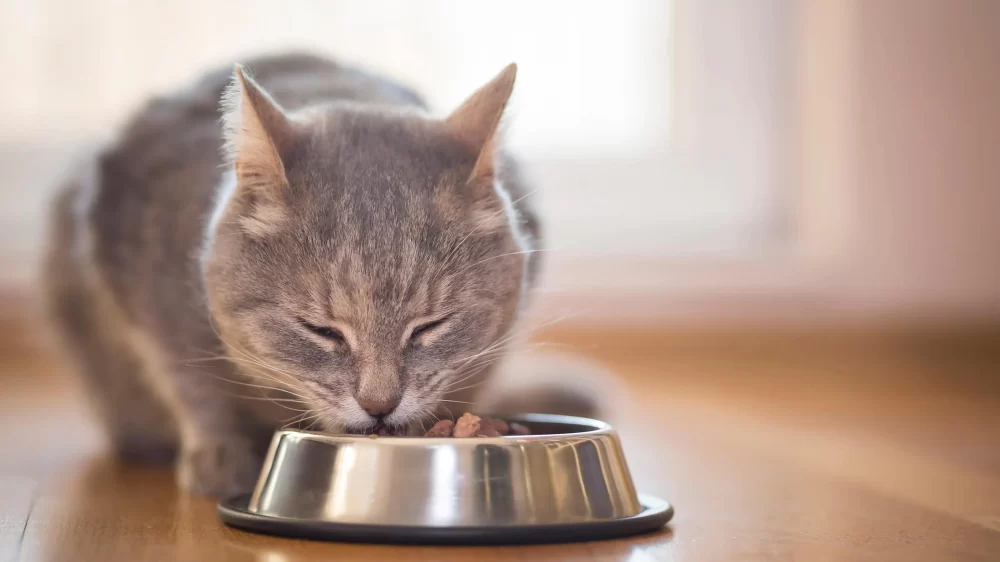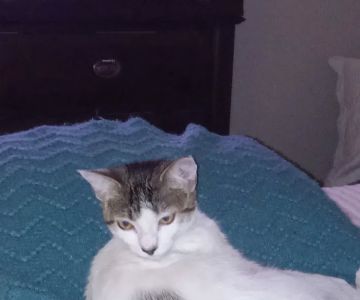What Not to Feed Your Cat: The Ultimate Guide to Keeping Your Feline Safe
As a cat owner, one of the most important things you can do is ensure that your furry friend is eating the right foods. Just like humans, cats have specific dietary needs, and not all foods are safe for them. In this article, I will share the foods you should absolutely avoid feeding your cat, and how these harmful foods can affect their health. From toxic human foods to seemingly harmless snacks, I’ll explain why certain items can be dangerous for your pet.
1. Chocolate: A Sweet Poison
We all love chocolate, but did you know it can be deadly for cats? Even though chocolate might seem like an innocent treat, it contains substances called theobromine and caffeine. These compounds are toxic to cats and can cause symptoms ranging from vomiting and diarrhea to more serious issues like seizures and heart problems.
My friend Sarah had an unfortunate experience when her cat, Whiskers, ate a few pieces of chocolate she had left on the counter. At first, Sarah thought Whiskers was just being naughty, but then she noticed him acting strangely—panting heavily and looking lethargic. A quick trip to the vet revealed that the chocolate had caused a mild poisoning. Fortunately, Whiskers recovered, but this serves as a reminder of how dangerous chocolate can be to our furry friends.
2. Onions and Garlic: Tiny Bulbs, Big Risks
Onions and garlic are staples in many kitchens, but they are a huge no-no for cats. These vegetables, especially when consumed in large amounts, can cause serious damage to a cat’s red blood cells, leading to a condition called hemolytic anemia. Even small quantities can be harmful, and repeated exposure to garlic or onions can cause long-term health issues.
Years ago, I gave my cat Simba some leftover chicken stew that had onions and garlic in it, thinking he might enjoy the taste. The next day, he seemed off—losing his appetite and acting sluggish. Thankfully, my vet was able to treat him quickly, but it was a close call. Now, I’m extra cautious about checking ingredients before feeding Simba anything outside of his regular cat food.
3. Grapes and Raisins: A Silent Danger
Grapes and raisins are another food that can be deceptively dangerous for cats. Although we don’t fully understand why they’re toxic to some cats, even small amounts can lead to kidney failure. The worst part is that not every cat reacts the same way to these fruits. Some might eat a small handful without any apparent issues, while others may experience severe symptoms, including vomiting, lethargy, and dehydration.
My sister once told me a terrifying story about her cat, Luna. Luna ate a few raisins from a snack bowl left on the table, and within hours, she started showing signs of distress. It was a race to the vet to get Luna the care she needed, and thankfully, she pulled through. Now, grapes and raisins are completely off-limits for all pets in my family.
4. Alcohol: A Big No for Small Bodies
Alcohol is one of the most dangerous substances for cats. It only takes a small amount of alcohol to cause significant harm to a cat’s liver and kidneys. Even though the idea of your cat sipping a tiny bit of beer or wine might seem funny, it’s incredibly risky. Alcohol can lead to severe poisoning, resulting in symptoms like vomiting, disorientation, and even respiratory failure in extreme cases.
Once, my friend Mark accidentally spilled a bit of beer on the floor, and his curious cat, Felix, licked it up. Within minutes, Felix started to act strangely, walking unsteadily and looking dazed. Mark rushed him to the vet, and luckily, Felix was treated in time. Ever since that incident, Mark has made sure to keep all alcoholic beverages far out of Felix's reach.
5. Dairy Products: The Myth of the Cat and Milk
While the image of a cat sipping a bowl of milk is a common one in cartoons, it’s not something that should be encouraged in real life. Many cats are lactose intolerant, meaning they can’t properly digest dairy products. Giving your cat milk or cheese can lead to upset stomachs, diarrhea, and general discomfort.
I learned this the hard way when I gave my cat Bella a small amount of cream one evening. She seemed to love it, but the next day, she had an upset stomach and spent most of the day hiding under the couch. After doing some research, I realized that the lactose in dairy was likely the culprit. I’ve since stopped offering her dairy and now know better than to fall for the old myth!
6. Raw Fish and Meat: Not as Safe as You Think
Although it’s tempting to imagine that feeding your cat raw fish or meat is a natural, healthy option, there are several risks involved. Raw fish and meat can carry bacteria and parasites, such as salmonella or E. coli, which can lead to serious infections. Additionally, certain types of raw fish contain an enzyme that destroys thiamine (a B vitamin essential for cats), leading to neurological problems if consumed regularly.
A friend of mine once fed her cat, Max, raw salmon as a treat. Afterward, Max developed symptoms of food poisoning—vomiting, loss of appetite, and lethargy. It took several days of treatment for Max to fully recover. From then on, my friend switched to cooking meat thoroughly before offering it to Max.
7. Caffeine: Not for Cats
Caffeine is another substance that should never be given to your cat. It’s found in coffee, tea, and energy drinks, and can have toxic effects on cats, leading to symptoms like restlessness, rapid breathing, heart palpitations, and even seizures. Given how easily caffeine can be found in everyday products, it’s crucial to keep such items out of your cat’s reach.
8. Avocados: Delicious for Us, Dangerous for Cats
While avocados are a healthy snack for humans, they can be harmful to cats. The fruit contains a substance called persin, which is toxic to many animals, including cats. Consuming avocado, even in small amounts, can cause vomiting and diarrhea in cats. Make sure to keep avocados away from your pets, as they may try to eat the skin or pit as well, both of which are even more dangerous.
9. Nuts: A Risky Treat for Cats
While many of us enjoy snacking on nuts, they aren’t suitable for cats. Macadamia nuts, in particular, are highly toxic to cats, even in small amounts. Other nuts, like almonds and walnuts, can be difficult for cats to digest and may cause gastrointestinal upset. If your cat has a tendency to steal food off the counter, it’s important to keep nuts and other snacks in places they can’t access.
10. High-Sodium Foods: Avoiding Salty Snacks
Foods that are high in sodium, such as chips, pretzels, and processed meats, are not suitable for cats. Too much salt can lead to dehydration, kidney damage, and even salt poisoning. In severe cases, excessive sodium intake can cause seizures and death. Always opt for fresh, well-balanced food for your cat to ensure they stay hydrated and healthy.
Feeding your cat the right foods is essential for their long-term health and happiness. By being mindful of the items listed above, you can avoid making dangerous mistakes and keep your feline friend safe. As pet owners, it’s up to us to create a safe and nurturing environment for our cats, and that includes being cautious about what goes into their food bowls.












